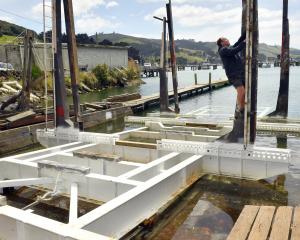

What does he know that other European leaders don’t?
He didn’t have to do it. His own term as president runs until 2027, and he knows that the men and women who just gave his Renaissance Party only 15% of their votes in the EU elections are the very same people who will vote for a new National Assembly in France in three weeks’ time. Macron’s party will lose again.
Losing the elections for the European parliament is not a big deal, because it has little real power. The original intention back in 1957 was that it should grow into something more impressive, but the member states have zealously guarded their sovereignty and big EU decisions are still really made by negotiations among the member states.
What the EU elections provide is a useful snapshot of how people would vote in a national election held right now. The message from this month’s EU poll is that the far-right nationalist parties are going to eat almost everybody else’s lunch.
That is already a done deal in the Netherlands, Hungary and Slovakia.
Italy’s Prime Minister Giorgia Meloni is also part of this group (although she is less extreme than the others), and both Austria and Germany may find it hard to exclude their own neo-fascists from coalition governments after the elections due this year (Austria) and next (Germany).
It’s France where the risk of a hard-right takeover is most acute. Marine Le Pen, the leader of the National Rally, has been creeping closer to the presidency in each of the last three elections (2012, 2017, 2022), ending up with 41% of the vote running against Macron in the last one.
Le Pen has "de-demonised" her party, changing its name from the fascist-sounding National Front, banning public displays of its traditional racism and anti-Semitism, and soft-pedalling her pro-Russian views since the invasion of Ukraine. Opinion polls say she is now the most popular politician in France.
In the EU elections on Sunday, Le Pen’s National Rally got 32% of the French votes, more than twice as many as Macron’s Renaissance.
If these results are duplicated in the parliamentary election Macron has now called in France, Le Pen will then be able to make a coalition with smaller far-right parties in the National Assembly and form a government.
Macron would remain president and control defence and foreign affairs until 2027, but Le Pen’s government would control most domestic matters. On hearing the results of the EU vote, she immediately said that her party was "ready to exercise power, ready to put an end to mass immigration" .
So, once again: why did Macron call a vote now?
He is not some hapless chancer like soon-to-be-ex-British Prime Minister Rishi Sunak, who called an election he is bound to lose just to end the misery and get back to his spiritual home in California.
Macron is a French patriot who thinks long term and always has a strategy.
The success of the far right in the EU election was a disaster foretold, and Macron will have decided on his response weeks ago.
He is deliberately giving Le Pen’s National Rally their chance at power three years early (now, not 2027), in the hope that they will make a complete mess of it and lose power again in just a few years.
Making a virtue of necessity, you might say, but he’s right. Nobody in the National Rally has any experience of running a government, and the coalition of extreme-right parties Le Pen will have to assemble will be full of jostling egos and downright crazies.
Give them enough rope, and maybe they’ll hang themselves.
Macron must realise that a great crisis over mass migration to Europe is coming in the near future, driven by out-of-control global warming. Temperatures in Greece, southern Italy and southern Spain are already hitting 40°C — but that’s nothing compared to temperatures reaching up to 50°C in India, Pakistan and the greater Middle East.
There will be literally millions of climate refugees trying to get into Europe, and the borders will slam shut.
Like it or not, that’s a given, but it should not be accompanied by a war on those who have already made their legal homes in Europe.
The far right is unlikely to make that distinction, so it would be better if they were in power now and out of power again by the time the real crisis hits.
Or maybe I’m crediting Macron with greater foresight than he actually has.
- Gwynne Dyer is an independent London journalist.












